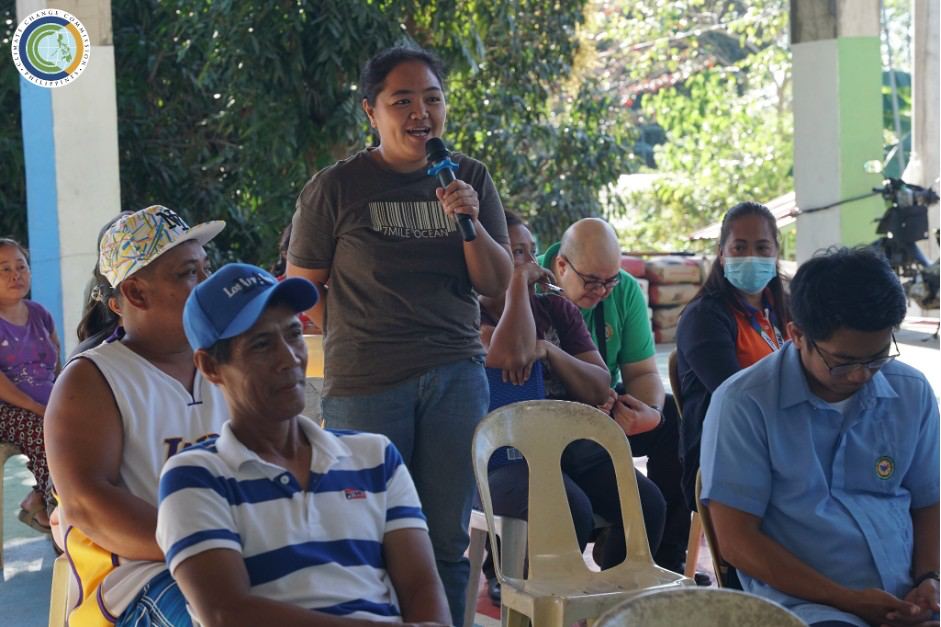
April 01, 2023 Saturday

MANILA, Philippines — To cap off this year’s National Women's Month, the Climate Change Commission PH (CCC) underscored the significance of developing women's skills and the necessity of their active participation in policies and programs in order to transition to gender-responsive climate-smart agriculture.
"Climate change exacerbates the already-existing gender inequalities in the agriculture sector and beyond, but if the considerable contribution that women make to agriculture is recognized, climate change may also present significant opportunities for women to become agents of change," said CCC Commissioner Rachel Anne S. Herrera, Chairperson of the CCC’s GAD Focal Point System.
The UN Climate Change (UNFCCC) through its Subsidiary Body for Implementation (SBI) reported the need to take into account the differentiated impacts of climate change such as on women and men, local communities and indigenous peoples, in climate policies, plans and action.
In an earlier visit to the agricultural community of Brgy. Rayuray, Batac, Ilocos Norte, gender-related concerns in the agriculture sector were discussed.
“Kapag sinabing magsasaka, ang madalas pumapasok sa isip ng tao ay lalaki. Kaming mga kababaihan ay sangkot din sa produksyon ng pananim, pag-aalaga ng hayop, at maging sa pagpo-provide ng pagkain, tubig, at enerhiya sa tahanan. Bukod po sa aming pamilya, inaalagaan din namin ang kaunlaran ng aming komunidad at nagiging sandigan sa sistema ng agrikultura,” shared Infenita Puyot, one of the female farmers.
(When we say farmers, what often comes to mind is a man. We women are also involved in crop production, animal production, and even providing food, water, and energy for our homes. In addition to our family, we also take care of the development of our community and have become a pillar of the agricultural system.)
“A gender-responsive approach to climate change resilience within the agricultural sector is crucial to address the differing levels of vulnerability experienced by women through empowerment,” said CCC Vice Chairperson and Executive Director Robert E.A. Borje.
Some of the strategies identified by the CCC toward gender mainstreaming in the agriculture sector include ensuring that:
● Gender and development (GAD) is incorporated into the national policies concerning agriculture and climate change;
● Women have equitable access to the resources and information required to implement climate-smart agriculture;
● Women are involved in the local planning, policy and budget processes;
● Gender-responsive climate finance is available through increased resource allocation and capacity-building programs; and
● There is an increased collaboration between relevant government agencies, and consultations are conducted with women who work in agriculture, using a bottom-up approach to facilitate knowledge sharing and awareness raising among policymakers.
The CCC itself has observed gender balance and women's representation within the organization. The Agency is composed of three Commissioners, including Commissioner Herrera.
Several policies were also put in place by the CCC, such as the Commission Resolution No. 2019-02, which strengthens the framework for gender-based approaches in the formulation and implementation of national climate change policies, plans, programs, and activities, including the generation of sex-disaggregated data and the conduct of gender analysis.
The Resolution also established the need for coordination among key agencies in promulgating policies, directives, and initiatives supportive of the collaborative approach to accomplish its objectives.
A GAD Focal Point System was also created to monitor GAD mainstreaming efforts in climate actions, and has appointed gender focal points to international forums.
The CCC continues to work closely with the Philippine Commission on Women, the Department of Agriculture, and other stakeholders in order to strengthen women’s capacity to protect and nurture the well-being of their respective communities from the impacts of climate change.
For more information on the CCC’s mainstreaming activities, visit the website http://climate.gov.ph.